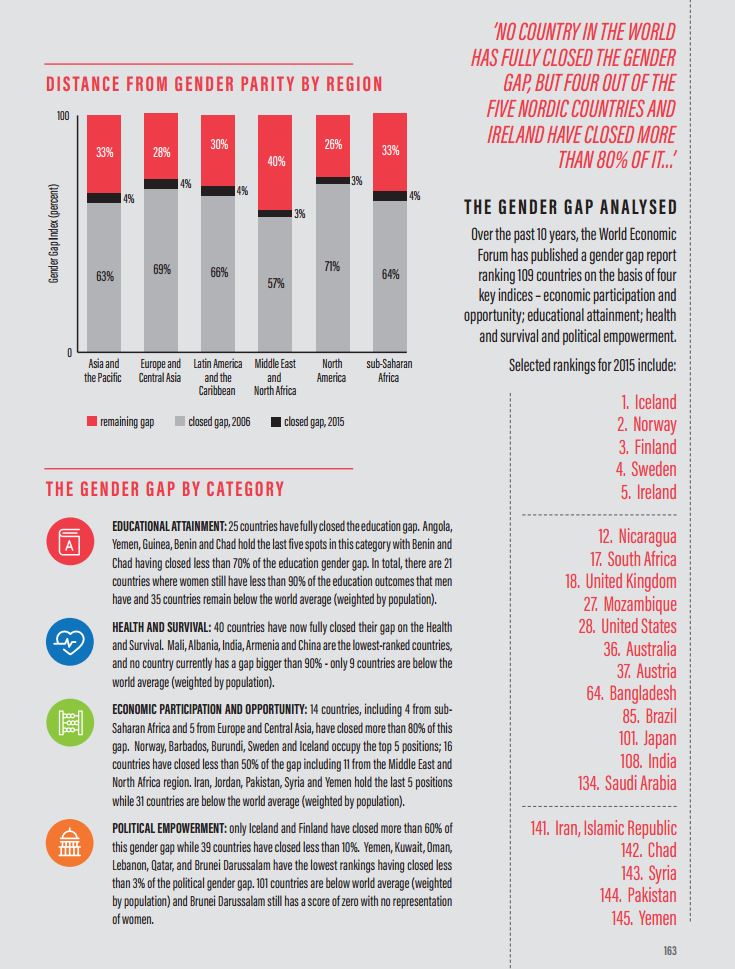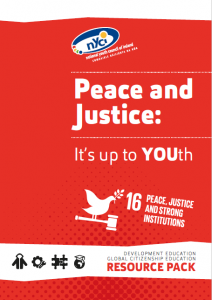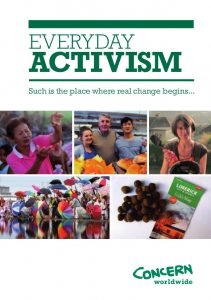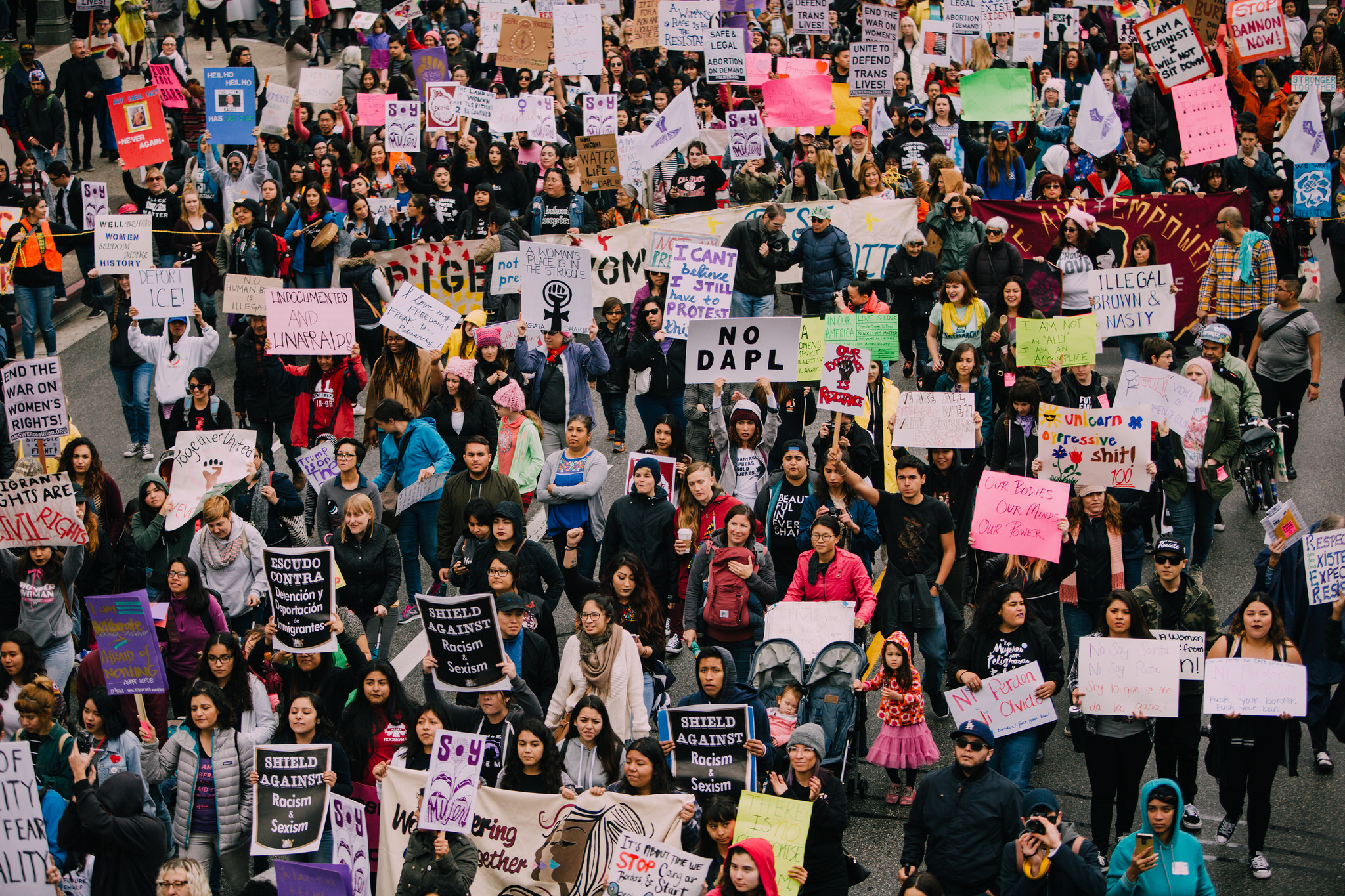Colm Regan presents 10 resources to explore International Women’s Day, celebrated globally every year on March 8th.
IWD was created in 1910 but only recognised by the UN in 1975.
There are the very obvious reasons why we continue to mark International Women’s Day. The core reality being that gender equality has not been achieved (and won’t be until 2186 according to the World Economic Forum) with the gender gap remaining at a high of 40% in the Middle East and North Africa and a low of 26% in North America.

Ongoing realities such as systematic discrimination, violence against women worldwide, Female Genital Mutilation, the denial of economic, reproductive and education rights as well as entrenched male attitudes and behaviours attest to its relevance and necessity. But IWD also recognises other realities, principally the struggle waged by women (and many men) throughout history to challenge these realities and the resulting achievements to date, especially in areas such as health, education, the workplace and, to a more limited extent, in politics. IWD reminds us that growing equality comes about largely as a result of ‘struggle’ and the women’s movement has and does make extensive use of campaigns, boycotts, marches, hunger strikes, the arts, literature and film as well as research, teaching and now, social media. Increased equality is not ‘granted’ or ‘bestowed’ by enlightened governments or men – it has to be ‘won’. IWD is about all dimensions of this story/journey.
But IWD is also about a much bigger agenda which reflects the history and emotions of the women’s movement and also relates directly to all of humanity and to its future – in this sense, the struggle for women’s rights is the struggle for all human rights. And, this can be seen in the values and principles which underpin IWD which are worthy of considered reflection.
1. Justice
Defining the ‘just’ or ‘fair’ society has long been a debate internationally. While we may not all agree on everything that makes a society fair and just, we can readily identify most of the key issues that make it unfair and unjust and the subjugation of women is one such issue. Justice, in this context means being able to realise the same equal rights and opportunities as men. Denying equality to half of humanity simply by virtue of their gender makes no sense ethically, politically, economically or socially. Discriminating against women means we discriminate against our mothers, sisters, wives, partners, daughters, friends and therefore, we undermine the common good.
Resource: a 10 minute ‘crash course’ exploring key aspects of justice and how it is understood and debated.
2. Dignity
Dignity, as a value, refers to the idea that all people have the right to be valued, respected and receive ethical treatment. The word is derived from Latin ‘dignitas’ meaning worthiness. It’s worth reminding ourselves of Article 1 of the Universal Declaration on Human Rights:
‘All human beings are born free and equal in dignity and rights. They are endowed with reason and conscience and should act towards one another in a spirit of brotherhood.’
Resource: for an inspiring the deeply moving insight into the substance and style of dignity, watch Maya Angelou read her famous piece ‘And still I rise’, and then watch the wonderful film And Still I Rise on Netflix.
3. Hope
Hope is the desire and expectation of obtaining or fulfilling certain things we want to happen. Hope was fundamental to the suffragette movement and to the subsequent women’s movement. Without it, the struggle for equality, justice and a better world would appear to be in vain. The Suffragettes symbolised the value of hope with the colour green.
 Resource: Peace and Justice: it’s up to YOUth
Resource: Peace and Justice: it’s up to YOUth
A National Youth Council of Ireland resource packed with activities, ideas and more for One World Week 2017 (and beyond); section 2 focuses on justice, transitional justice and restorative justice.
4. Equality
Equality means ensuring all people have equal opportunities to make the most of their lives and talents, and that no one has poorer life chances due to their background or status – this is at the very core of IWD. Gender equality refers to women receiving and accessing the same opportunities and benefits as men – but throughout history, women have been deemed to be ‘second class citizens’. Across the world women have had to campaign and struggle for such basic rights as voting, property inheritance, maternal healthcare, basic education, personal security and even the right to drive a car!
Resource: the brilliant witty, insightful and compelling TED talk from the brilliant Nigerian Chimamanda Ngozi Adichie
5. Collaboration
Strength in numbers and voice are critical in driving change; International Women’s Day was founded on collaboration, and this continues to be a key element of its power to this day. Across the world individuals and groups unite, not only to celebrate the achievements of women, but to continue to call for action supporting greater gender parity.
Resource: Everyday Activism: such is the place were real change begins 
A resource exploring the nature of everyday activism and how people have worked together to achieve real and lasting change – with ideas on what you can do!
6. Tenacity
‘Deeds not words’ was the Suffragettes’ motto and they devoted considerable attention and energy to forging the rights of women. Around the world today, as in the past, exists an extensive number of groups and networks all working to improve the social, economic, cultural and political status of women – and International Women’s Day is the major day for rallying action, driving visibility and applauding women who make a difference through their achievements.
Resource: ‘You hang around the barber’s shop long enough, sooner or later you’re gonna get a haircut’, see what Denzel Washington has to say…
7. Appreciation
International Women’s Day provides a specific and designated moment each year to identify and celebrate the successful achievements of women. Through recognising failure and then celebrating success, people not only become more aware of the role women play in society but also increase the expectation and the demand that women will not be attacked, marginalised or discriminated against.
Resource: the great Maya Angelou again – ‘people will know you…’
8. Respect
Equality can only be achieved if the diversity, differences and qualities of women and all of humanity and the planet are truly valued. Respect for others and for nature is a key value underpinning the ethos and agenda of International Women’s Day and what is stands for.
Resource: a 6-minute video from US rapper Prince Ea on respect for the planet; a sorry to future generations if….
9. Empathy
Seeking to understand others, caring for and valuing diversity, and appreciating difference are key to forging deep relationships to affect change. It’s through the ability to understand and share the feelings of others that differing situations and perspectives can be grasped. International Women’s Day calls for global understandings about the plight of women – the challenges faced, obstacles endured and changes desired for an inclusive and progressive world.
Resource: a 3-minute animation on the nature of empathy by Brené Brown and presented by RSA (Royal Society for the encouragement of Arts, Manufactures and Commerce) – a source of endlessly creative animations on key issue aimed at enriching society through ideas and action.
10. Forgiveness
Throughout history women have been undermined, mistreated and abused – and still to this day women suffer inhumane treatment in far too many places and circumstances. Focusing attention and effort on the way forward, reconciling discrimination through encouraging awareness and joining together to affect positive change is all part of what International Women’s Day stands for.
Resource: a 3-minute comment from Desmond Tutu ‘forgiving is good for your health’.
- Feature photo: International Women’s Day March, Los Angeles (2017) by Molly Adams (CC-BY-2.0 via Flickr).


